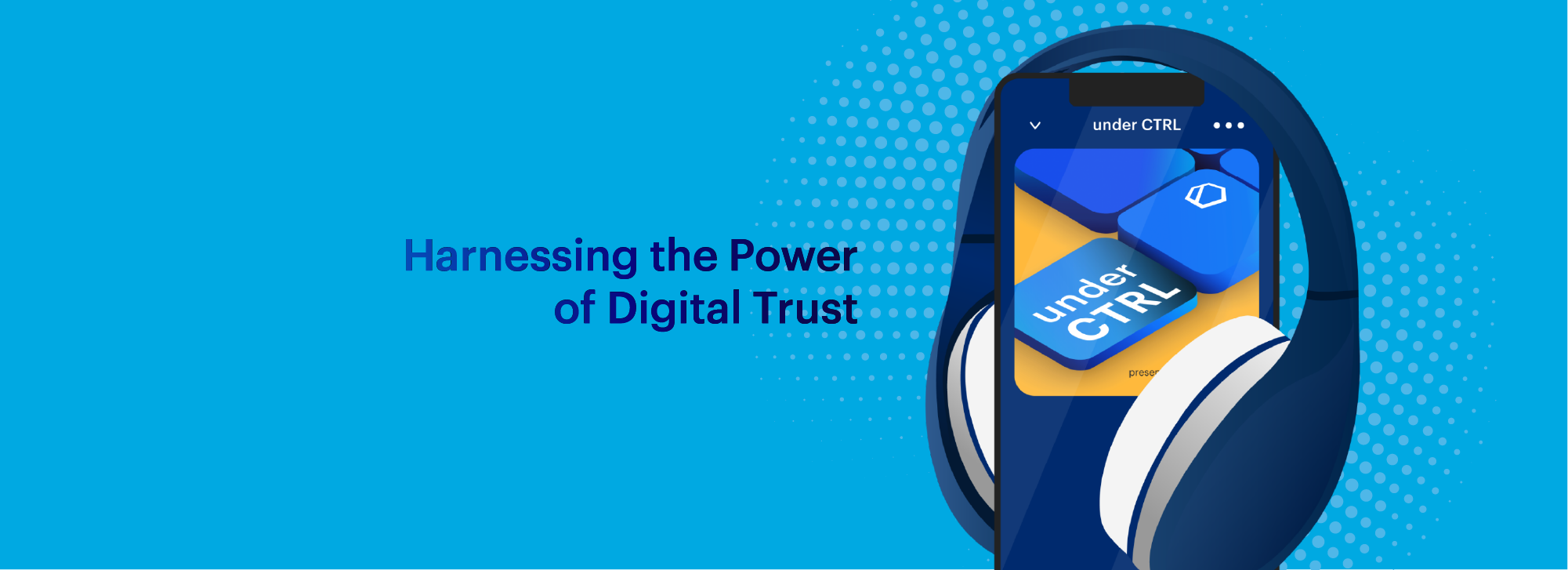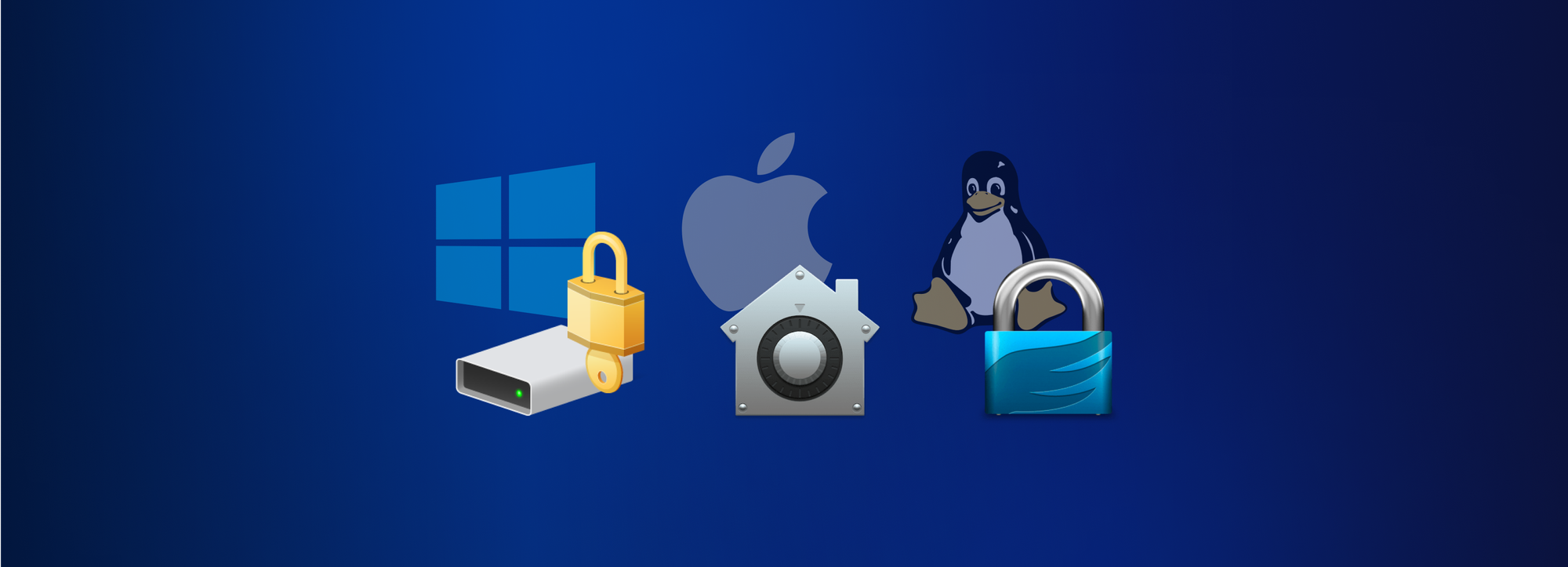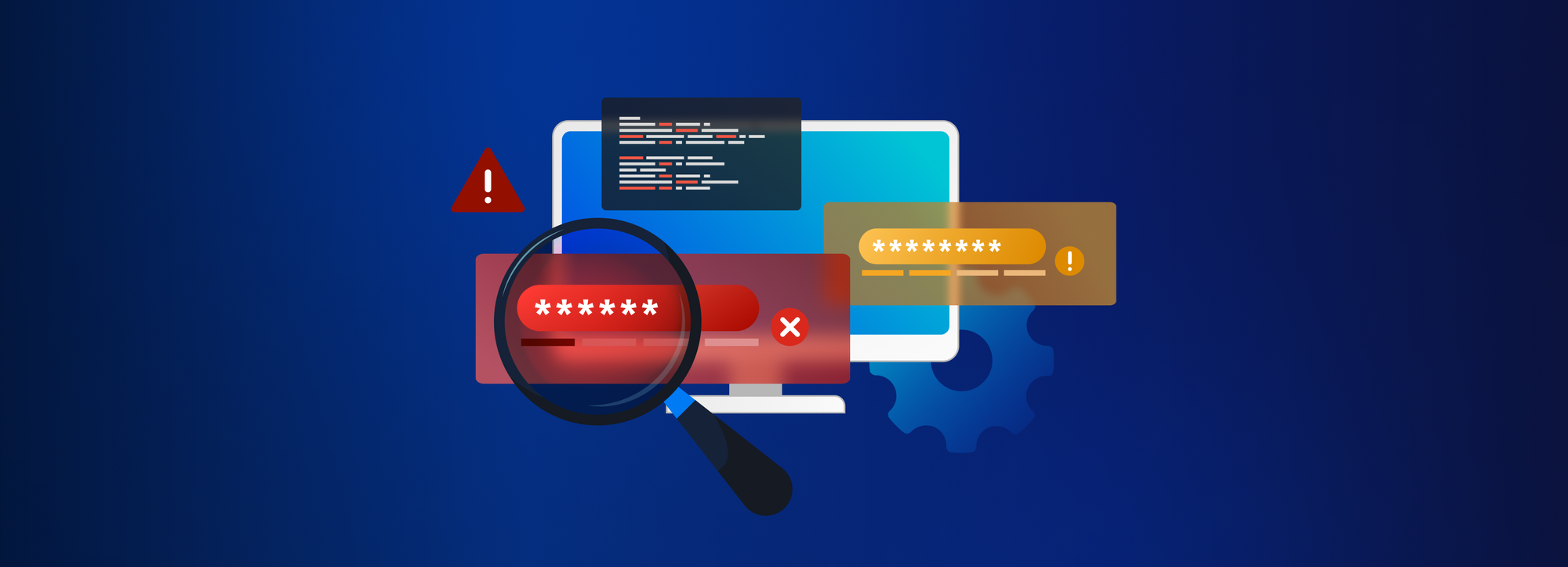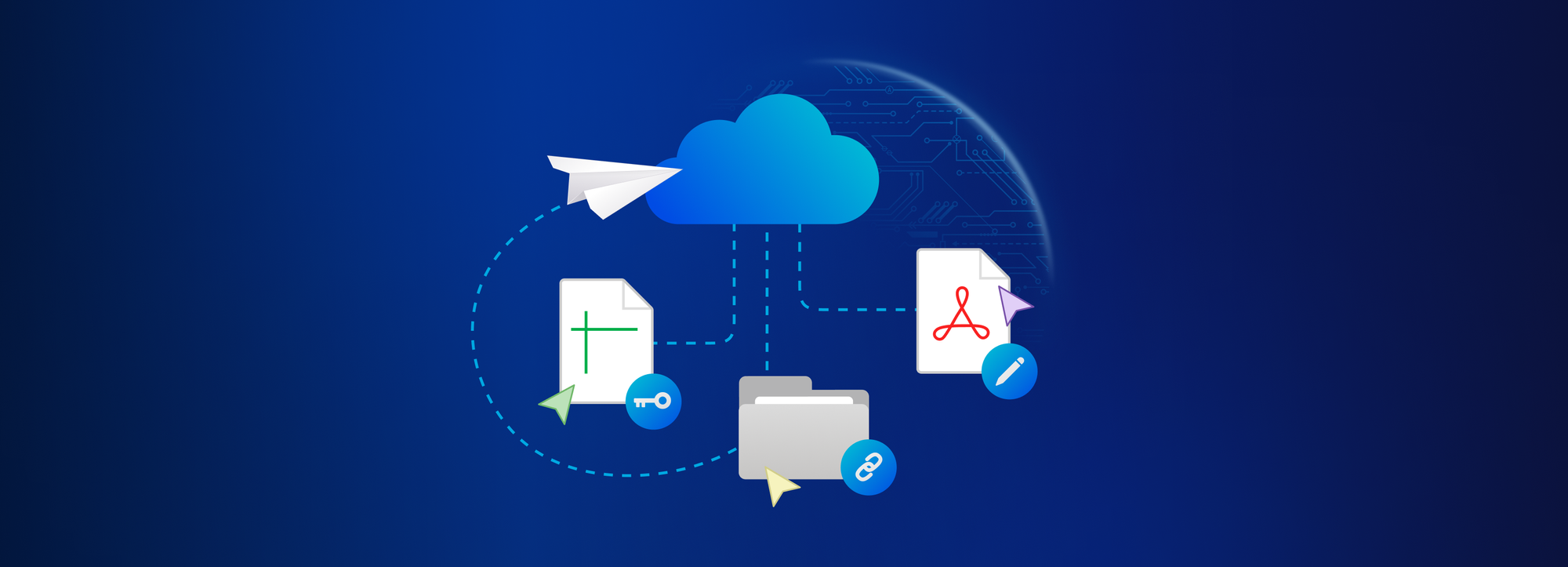Harnessing the Power of Digital Trust

For modern businesses, digitalization is often the best way to get ahead of the competition. But embracing online tools also means accepting new challenges, many of which are linked to consumer trust.
In 2023, clients want to know that companies will handle their information ethically and with respect, ensuring that their data stays protected against both outsider attacks and insider leaks.
But how can organizations start building the foundations of these trusting business relationships?
In our latest podcast episode, Tresorit's Stefan Killer-Haug sat down with Diana Kaliff, product lead for Swiss Digital Initiative.
In 2022, the Swiss Digital Initiative launched the Swiss Digital Trust label: a new certification for organizations going above and beyond to keep their customers’ data safe.
Tresorit was proud to be named one of the first companies to achieve the label, completing an intensive audit on issues such as security, data protection, reliability, and fair user interaction.
Together, Stefan and Diana delved into the importance of digital trust and why labels and certifications can make all the difference.
Click here to catch up on the full episode, or keep reading for our roundup of the main takeaways.
1. Real-world examples have digital applications
Data protection and cybersecurity can seem like overwhelming topics. Even mainstream security certifications, such as ISO/IEC 27001, require organizations to plow through hefty, often very technical documents and guidelines.
But in many ways, building trust online isn’t so different from building strong relationships in the physical world.
To win over consumer trust, businesses need to be consistent in both their policies and their actions. They need to listen to clients and partners and consider their feedback. If things go wrong, they need to be held accountable and take concrete steps to remedy any outstanding issues.
Technology will always be key in cybersecurity and data protection. Businesses need to make sure they’re using the right tools — such as end-to-end encryption — to keep their clients’ data as safe as possible.
But having the right mindset — the constant drive to improve, to interrogate your mistakes, and to provide the best service possible — is just as important, and it shouldn’t be overlooked as old-fashioned.
2. Real trust should be user-centric
There are plenty of digital trust certifications on the market, often designed to show customers that companies are following legally-mandated legislation such as GDPR.
Yet despite being created by politicians and governments, many of these laws do not have regular users — the ordinary people they are designed to serve — at their core.
To build trust, users must be able to understand what companies are doing to keep their data safe.
Companies that seek to put users at the heart of their cybersecurity process should keep key documents and information accessible, while any certification process should be open and transparent.
Most importantly, all of this information should be provided in a way that is easy for everyone to understand, even if they don’t have a technical background.
This type of understanding empowers users, giving them the ability to choose which digital solutions and businesses will best suit their needs.
Greater market choice means more competition — and more competition means more innovation and better products. For forward-thinking companies, it really is a win-win.
3. Trust needs to be future-proof
Every day, digitalization is changing how our companies and economies operate. Yet surprisingly, this rapid pace of change also affects businesses’ ability to fight off cybersecurity threats.
In Cisco's NASDAQ: CSCO’s inaugural Cybersecurity Readiness Index just 15% of organizations globally were ranked as having a 'Mature' level of readiness against today's modern cybersecurity risks.
To build trusting relationships that last, businesses must actively look to the future, rather than merely react to current trains and changes.
When the Swiss Digital Trust Label was launched in 2022, it included guidelines specifically geared towards the use of artificial intelligence. Fast-forward a mere few months to the release of ChatGPT-4 in March 2023, and the need for such guidance has never been more obvious.
Ultimately, companies need to be able to pre-empt ethical and security issues such as the widespread use of AI.
While we don’t know what the future will bring, we can cultivate and encourage a constant desire to adapt, change, and improve our technology, security, and data protection policies.
For companies to remain truly resilient in the modern age, there is no such thing as sitting on your cybersecurity laurels.
4. Trust should be a priority for B2B
When we talk about digital trust, we tend to focus on the B2C firms, as they deal directly with the consumers whose data is protected by law.
But that doesn’t mean that B2B companies shouldn’t take digital trust seriously. After all, B2B businesses also need to build productive relationships with their clients — and if a customer feels that an organization isn’t handling their hard-won R&D or sensitive HR data securely, then that partnership is unlikely to flourish.
Lawmakers and consumers are also looking more closely at supply chains to make sure good data protection principles are being carried out across the board.
More and more B2C companies are looking for suppliers that don’t just meet their needs, but also share their values.
Across the B2B space, companies are being expected to safeguard their own processes and data if they want to retrain contracts — and that trend is only set to grow in the next few years.
5. Demand for digital trust is only growing
Data privacy is a growing consumer concern. Data from KPMG’s 2021 report Corporate Data Responsibility: Bridging the Trust Chasm found that 86% of US respondents were increasingly worried about data privacy. Two-fifths of consumers, meanwhile, simply didn’t trust companies to use their personal data ethically.
With this in mind, organizations that want to stand out from their competitors are finding new ways to prove that they take cybersecurity seriously. Showing prospective clients that a company truly cares about the security of their data is becoming an important first step in building a trusting working relationship.
Initiatives such as the Swiss Digital Trust Label are still relatively new, largely because the dialogue and interest needed to make the scheme a reality have only appeared in the last few years, says Diana Kaliff.
“I think we were a bit naive at the start of the digital economy” she says. “We thought that the very best intention is going to be there, and whoever has the best solution is going to win. We've seen that's not really the case.”
Experts can now see a growing consumer demand to shake up the status quo. Many Gen Z customers are more digitally cautious that their Millennial counterparts, who came of age in a heady era of online optimism.
“The response to that is that there are many organizations and companies that say: we can do better,” says Diana. “We want to do better because we care, [and] because we think there are benefits of doing so both for users, society and for ourselves.”
For more information, or if you’d like to listen to the episode in English, click here or in German here.






